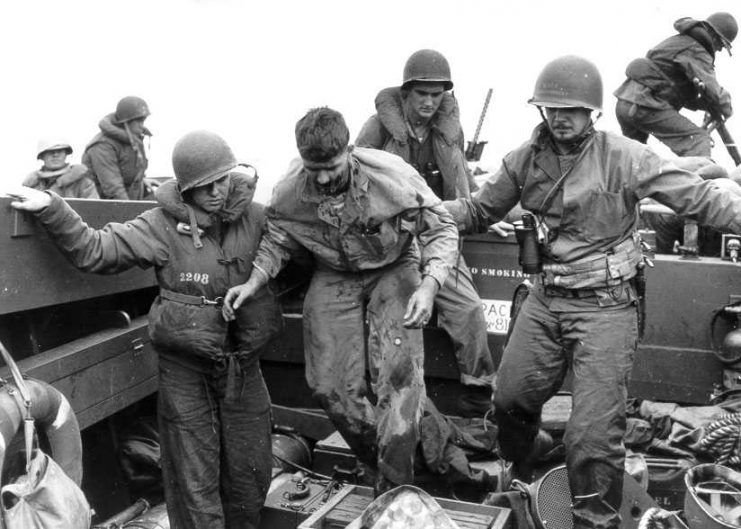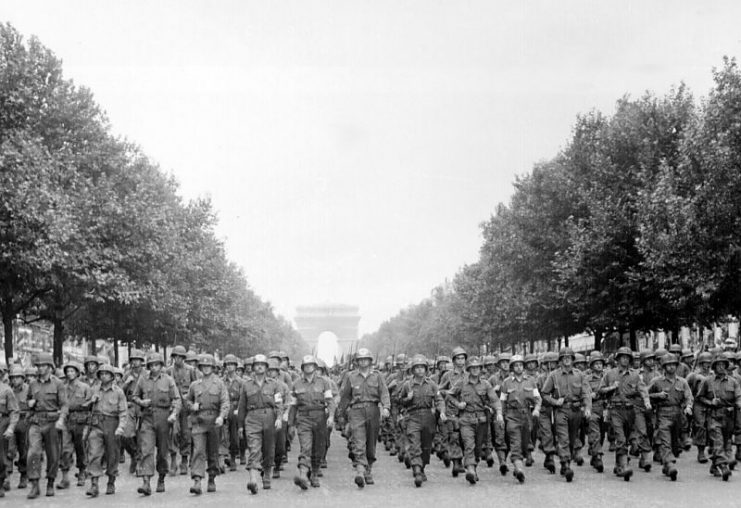Joe Alosi bids on storage units that have been abandoned by whoever rented them. He does not know what he is getting before he purchases a unit, so he is always at least a little surprised when he opens one up after purchasing the contents.
The contents of this particular unit he had purchased were not exciting at first glance, just several plastic bins which were covered with dust. It’s the contents of those bins that are one of the more memorable discoveries he’s ever made on the job.
Inside each bin were rows of envelopes, tightly packed in their sealed containers. As a veteran of the Marine Corps, he felt a connection with the letters he found in the envelopes as he opened each one.
Mostly hand-written, mostly written by members of a single family, the letters dated back to World War II. The Eydes family lived in Rockport, Illinois, and had three brothers serving in the military during the war. One of the brothers was a Marine, one was in the Army, and the third served in the Army Air Forces.
The letters numbered in the hundreds, they covered the WWII years and more, documenting the terror of war, the nostalgia of childhood, and opinions on everything from movies to the Chicago Cubs. They even document the racist and stereotyped descriptions of the Japanese and German soldiers common at the time.
Taken together, the letters document the war from multiple fronts, as the brothers each relate their individual experiences to the family back home. With great detail and not a little narrative skill, the brothers share a unique insight into the lives of the troops in battle and in between battles.

One of the brothers, Frank, developed a condition diagnosed as “schizophrenia” by the doctors. As his mental condition worsened, his letters became shorter and shorter. Eventually, his life is documented by the brothers, who discuss Frank’s legal troubles and emotional condition, while they plan and move on with their own lives after the war.
John Eydes ran a window installation business after his discharge from the military. He died in 1962 from a brain tumor.
Ralph worked for the US Atomic Energy Commission, where he witnessed the test of nuclear bombs in the South Pacific. Not much else is known about his professional life, other than that he worked either with or for the CIA, who refuses to divulge information about the work he did or his relationship with the agency.
Sanford, a fourth brother, was found unfit for military service and so did not serve in the war. He worked for Woodward Governor until his death at age 56, in 1971.
Alosi brought the letters home and shared them with his wife and children. They took turns and read the letters out loud to the whole family. Meanwhile, Alosi wondered how such a treasure trove of family history could have been abandoned in a storage locker and whether any of the family members were around to return the letters to.

Alosi held onto the letters for eight years, unable to find any relatives to return them to. Eventually, he reached out to the Washington Post. The newspaper was able to locate a distant relative of the Eydes – a second cousin named Vicki Venhuizen who knew the brothers when they were young men. She said that none of the brothers ever married or had children. The other cousins their age have all died.
Ralph was the brother who had stored all of the letters. He had given them to a half-sister who, in turn, left them to her relatives when she died. Those relatives were most likely unaware of the significance of the letters and never retrieved them. It is unclear exactly how they ended up in the storage unit.
Venhuizen expressed her gratitude that Alosi had not simply thrown them away. She hopes to read them someday. Alosi said he’d work with Venhuizen to determine what will happen with the letters.
